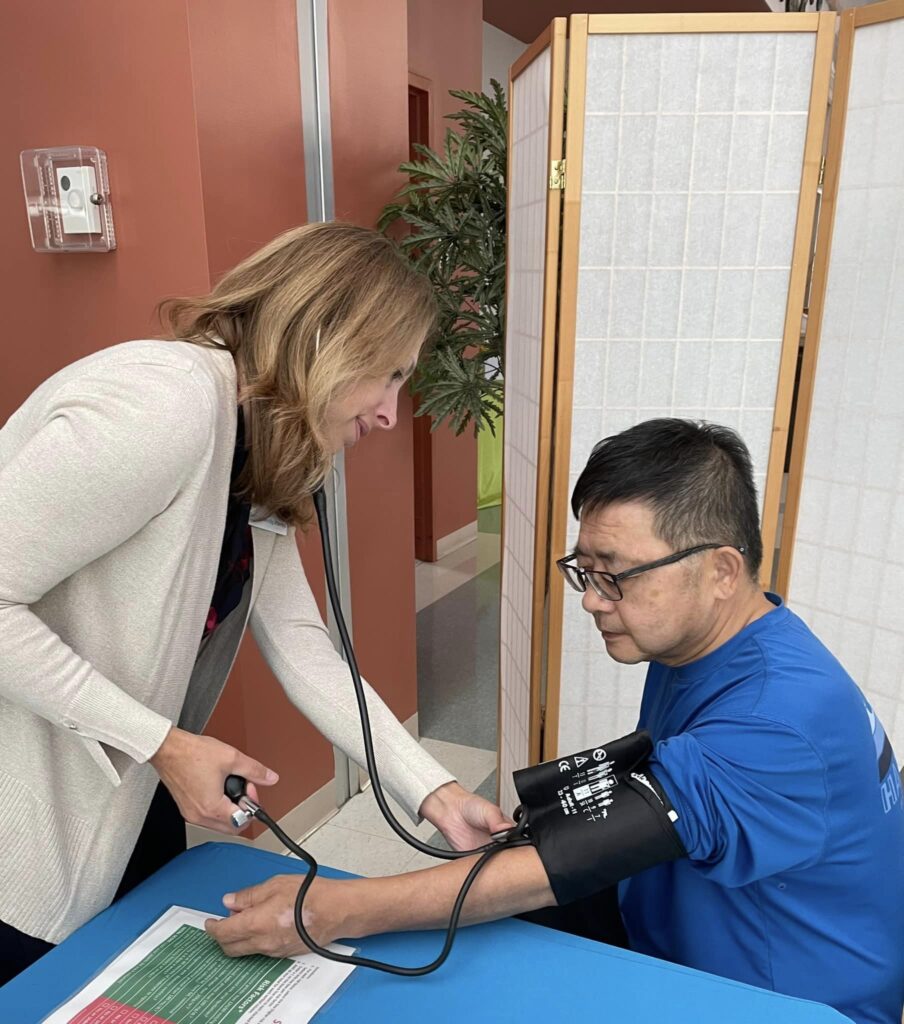Patient Advocate in Columbia, MD
When Do You or a Loved One Need a Patient Advocate?
If you or a loved one is currently in the hospital, rehab, or any other care facility, and you have concerns about the quality of care or the next steps, this service becomes essential.
At times, you might feel that updates from the facility are lacking, and the medical information you are receiving is confusing. Additionally, the care provided may not meet your expectations. Having a patient advocate can help bridge these gaps and ensure that your concerns are addressed appropriately. A registered nurse healthcare advocate knows how to get answers to your questions.
A healthcare advocate or patient advocate, can be instrumental if you are responsible for making crucial decisions about procedures or care. With the education and training required by the health care system, registered nurses can effectively advocate on your behalf throughout your medical journey, ensuring you receive the best possible care.
Nurse advocates are patient care liaisons who are well-versed in understanding patients’ challenges. These independent healthcare consultants possess the skills to communicate effectively with doctors and other healthcare professionals. When it comes to the healthcare system, shortcuts have no place, and thorough support is crucial.

Serving Central Maryland for in person advocacy. Telehealth advocacy is available outside of this area.
Initial visit:
Andrea visits you or your loved one at the facility. Telehealth for nurse advocacy may be available depending on the circumstances if you are out of the service area. Medical paperwork including the admission note, medication list, physical therapy notes, and other pertinent documents from healthcare providers are reviewed. A focused bedside assessment is completed.
Consultation with social workers, nursing staff, physicians or therapists gathers details about the current medical condition and the plan moving forward. This information is then relayed to the client and their family members concisely so they can make well-informed decisions.
A care plan for discharge from the facility is generated. At times, Andrea will attend care planning and discharge planning meetings or telephone conferences to ensure all the support is in place for a smooth transition.
Follow-up visits:
Through Andrea’s expertise and attention to detail, follow-up visits include a careful evaluation of the care plan and patient condition. This ensures continuity of care and provides the best possible care.

Here Are Some Of The People Who Have Benefited From A Patient Advocate

In the hospital

In a rehabilitation facility
In a skilled nursing facility

In a long term care facility


In an assisted living facility

In a memory care facility
How Often Are the Visits?
The frequency of visits depends on the specific conditions and requirements. By remaining flexible and responsive to the evolving changes, Andrea ensures that appropriate and timely care is provided.
Let Andrea Advocate For You!
Searching for a trustworthy and strong nurse advocate? Connect with Andrea! She’s a renowned registered nurse and offers exceptional healthcare advocacy services for her clients.
Andrea provides support and understanding to patients in exploring their healthcare options, empowering them to make informed decisions about their treatment. Furthermore, she dedicates herself to ensuring they receive the best care available.
We provide a diverse range of specialized consulting services tailored to meet your unique needs:
Geriatric Care Manager: Providing personalized care management for seniors.
Nurse Leadership Coaching: Coaching and mentoring for nursing professionals.
Dementia Caregiver Support: Offering guidance and support for dementia caregivers.
Ready to have a strong patient advocate by your side? Contact Andrea today for more details about the services available.
Here’s a fantastic five-star Google Review from a client who used Andrea’s advocacy services.
Success Story
Explore the remarkable success tale of our collaboration with a client at a rehab facility. Initially facing inadequate care and a decline in health, including being mostly confined to a wheelchair, wearing a helmet to prevent injury from falls, and having a urinary catheter and a pressure wound, we worked closely with the healthcare providers, nurses, and therapists to enhance care.
Through consistent efforts and routine visits to the rehab by Wellness Strategies Group, this client successfully transitioned to an assisted living facility. Today, he walks and no longer wears a helmet; the wound has healed, and the urinary catheter is no longer necessary. Proactive care and collaboration are successful in improving patient outcomes. We are so inspired by this client’s tenacity and honored to be on his care team!
Benefits of a Nurse Healthcare Advocate
Hiring a nurse as your healthcare advocate can be highly beneficial for several reasons:
Medical Knowledge and Expertise
nurses possess extensive medical knowledge and training allowing them to understand and navigate complex healthcare information effectively.
Personalized Care
nurses provide individualized attention and care, and they act as your voice and ensure that your specific concerns and wishes are communicated to healthcare providers.
Coordination of Care
nurses excel at coordinating healthcare services and ensuring seamless communication between different healthcare providers while they oversee your overall healthcare plan.
Patient Education
nurses are excellent education and can explain medical conditions, treatment option, and self-care practices in a clear and understandable manner empowering you to participate in your healthcare decisions.
Advocacy and Support
nurses are strong advocates for their patients because they prioritize your well-being ensuring that you receive the best possible care and that your rights are respected throughout the healthcare journey.
Monitoring and Follow-Up
nurses practice a proactive approach to monitor your progress and treatment plan which can lead to better health outcomes and prevent potential complications.
Emotional Support
nurses provide empathy, compassion, and emotional support during emotionally challenging times helping you cope with the stress and uncertainties that come with healthcare experiences.
Continuity of Care
nurses are familiar with your medical history and can work with you over time, providing consistent support, guidance and continuity of care.
Medical Knowledge and Expertise – nurses possess extensive medical knowledge and training allowing them to understand and navigate complex healthcare information effectively.
Personalized Care – nurses provide individualized attention and care, and they act as your voice and ensure that your specific concerns and wishes are communicated to healthcare providers.
Coordination of Care – nurses excel at coordinating healthcare services and ensuring seamless communication between different healthcare providers while they oversee your overall healthcare plan.
Patient Education – nurses are excellent education and can explain medical conditions, treatment option, and self-care practices in a clear and understandable manner empowering you to participate in your healthcare decisions.
Advocacy and Support – nurses are strong advocates for their patients because they prioritize your well-being ensuring that you receive the best possible care and that your rights are respected throughout the healthcare journey.
Monitoring and Follow-Up – nurses practice a proactive approach to monitor your progress and treatment plan which can lead to better health outcomes and prevent potential complications.
Emotional Support – nurses provide empathy, compassion, and emotional support during emotionally challenging times helping you cope with the stress and uncertainties that come with healthcare experiences.
Continuity of Care – nurses are familiar with your medical history and can work with you over time, providing consistent support, guidance and continuity of care.

